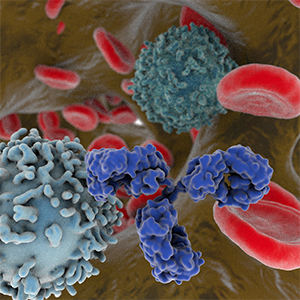 In this 15th installment of the annual ‘Antibodies to Watch’ article series, we review commercially sponsored monoclonal antibody therapeutics currently in late-stage clinical development, regulatory review, and those granted a first approval in any country in 2023. We also discuss clinical phase transition and overall approval success rates for antibody therapeutics, which are crucial to the biopharmaceutical industry because these rates inform decisions about resource allocation. Our analyses indicate that these molecules have approval success rates in the range of 14–32%, with higher rates associated with antibodies developed for non-cancer indications. Overall, our data suggest that antibody therapeutic development efforts by the biopharmaceutical industry are robust and increasingly successful.
In this 15th installment of the annual ‘Antibodies to Watch’ article series, we review commercially sponsored monoclonal antibody therapeutics currently in late-stage clinical development, regulatory review, and those granted a first approval in any country in 2023. We also discuss clinical phase transition and overall approval success rates for antibody therapeutics, which are crucial to the biopharmaceutical industry because these rates inform decisions about resource allocation. Our analyses indicate that these molecules have approval success rates in the range of 14–32%, with higher rates associated with antibodies developed for non-cancer indications. Overall, our data suggest that antibody therapeutic development efforts by the biopharmaceutical industry are robust and increasingly successful.
Download or read the full paper here.
The complete abstract is here: The ‘Antibodies to Watch’ article series provides an annual summary of commercially sponsored monoclonal antibody therapeutics currently in late-stage clinical development, regulatory review, and those recently granted a first approval in any country. In this installment, we discuss key details for 16 antibody therapeutics granted a first approval in 2023, as of November 17 (lecanemab (Leqembi), rozanolixizumab (RYSTIGGO), pozelimab (VEOPOZ), mirikizumab (Omvoh), talquetamab (Talvey), elranatamab (Elrexfio), epcoritamab (EPKINLY), glofitamab (COLUMVI), retifanlimab (Zynyz), concizumab (Alhemo), lebrikizumab (EBGLYSS), tafolecimab (SINTBILO), narlumosbart (Jinlitai), zuberitamab (Enrexib), adebrelimab (Arelili), and divozilimab (Ivlizi)). We briefly review 26 product candidates for which marketing applications are under consideration in at least one country or region, and 23 investigational antibody therapeutics that are forecast to enter regulatory review by the end of 2024 based on company disclosures. These nearly 50 product candidates include numerous innovative bispecific antibodies, such as odronextamab, ivonescimab, linvoseltamab, zenocutuzumab, and erfonrilimab, and antibody–drug conjugates, such as trastuzumab botidotin, patritumab deruxtecan, datopotamab deruxtecan, and MRG002, as well as a mixture of two immunocytokines (bifikafusp alfa and onfekafusp alfa). We also discuss clinical phase transition and overall approval success rates for antibody therapeutics, which are crucial to the biopharmaceutical industry because these rates inform decisions about resource allocation. Our analyses indicate that these molecules have approval success rates in the range of 14–32%, with higher rates associated with antibodies developed for non-cancer indications. Overall, our data suggest that antibody therapeutic development efforts by the biopharmaceutical industry are robust and increasingly successful.


